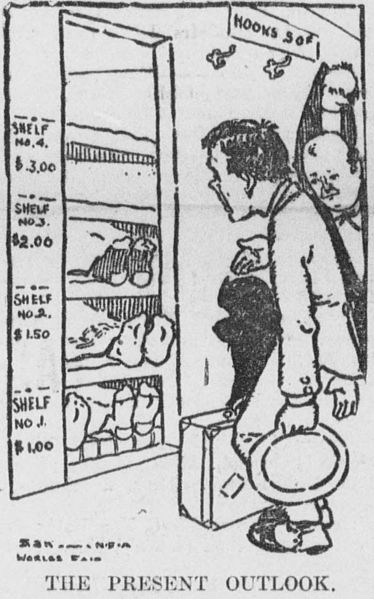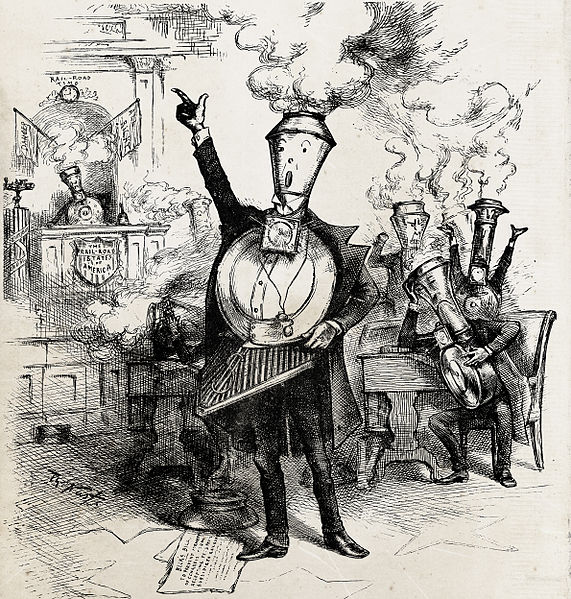Price gouging is the practice of increasing the prices of goods, services, or commodities to a level much higher than is considered reasonable or fair. Usually, this event occurs after a demand or supply shock. This commonly applies to price increases of basic necessities after natural disasters. The term can also be used to refer to profits obtained by practices inconsistent with a competitive free market, or to windfall profits. In some jurisdictions of the United States during civil emergencies, price gouging is a specific crime. Price gouging is considered by some to be exploitative and unethical and by others to be a simple result of supply and demand.
1904 cartoon warning attendees of the St. Louis World's Fair of hotel room price gouging
In the early stages of the COVID-19 pandemic, there were shortages of some consumer goods due to supply chain pressures and increased demand as a result of rationing. Such as "Customer limited to 1 package of toilet paper", such rationing creates additional artificial demand.
Competition law is the field of law that promotes or seeks to maintain market competition by regulating anti-competitive conduct by companies. Competition law is implemented through public and private enforcement. It is also known as antitrust law, anti-monopoly law, and trade practices law; the act of pushing for antitrust measures or attacking monopolistic companies is commonly known as trust busting.
Judge Coke in the 17th century thought that general restraints on trade were unreasonable.
Elizabeth I assured monopolies would not be abused in the early era of globalization.
Senatorial Round House by Thomas Nast, 1886
John Stuart Mill believed the restraint of trade doctrine was justified to preserve liberty and competition.






